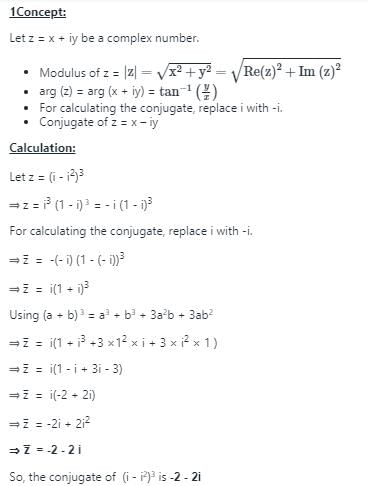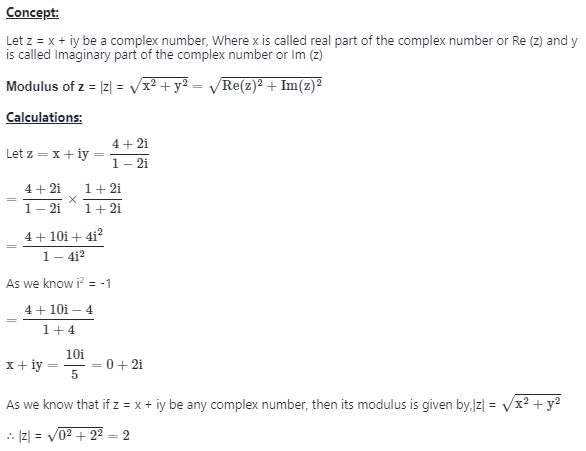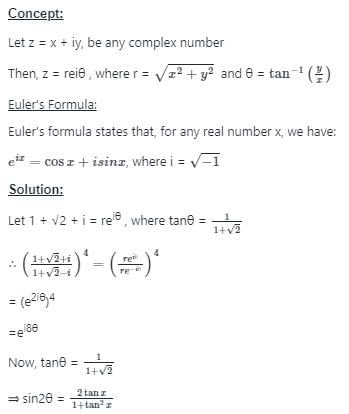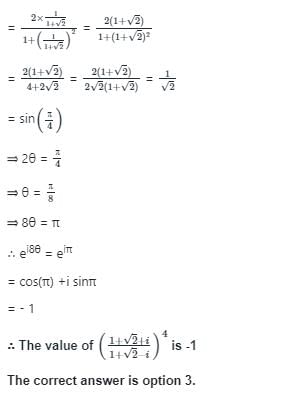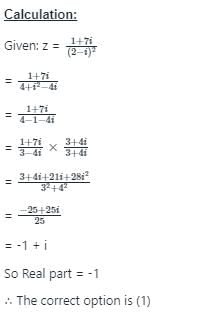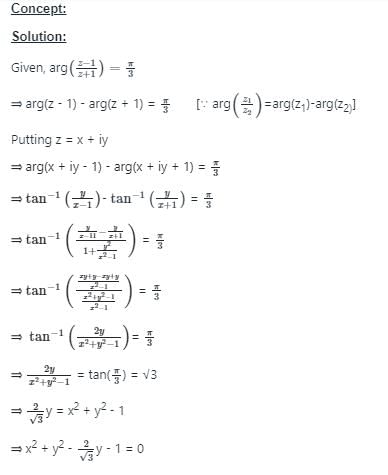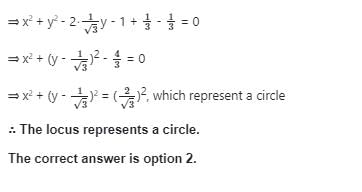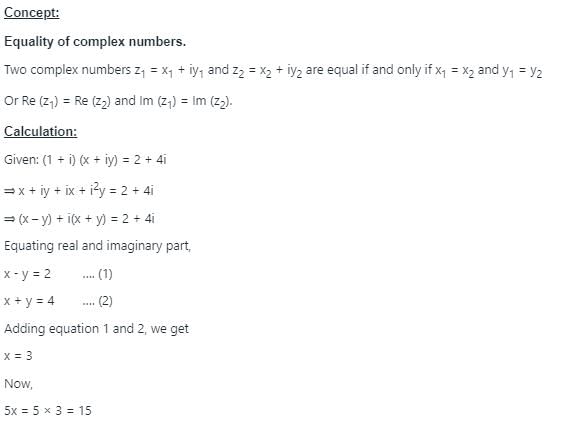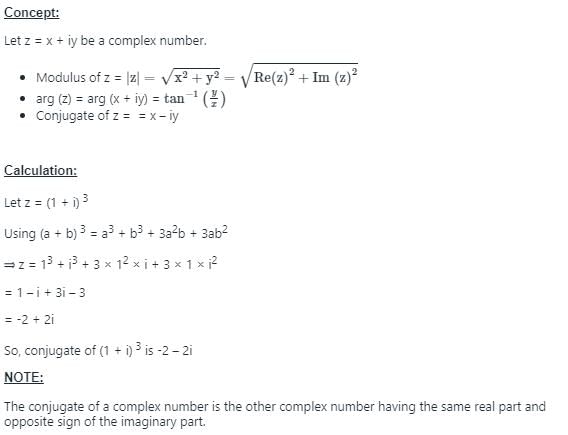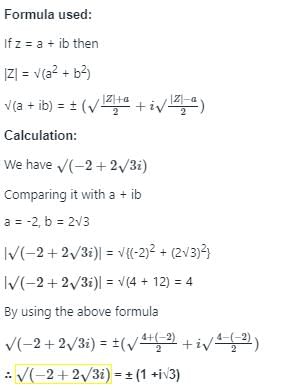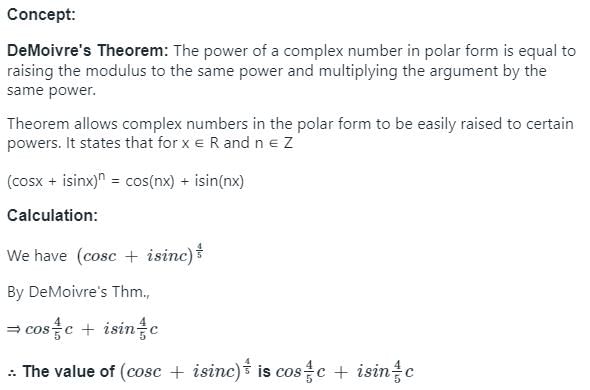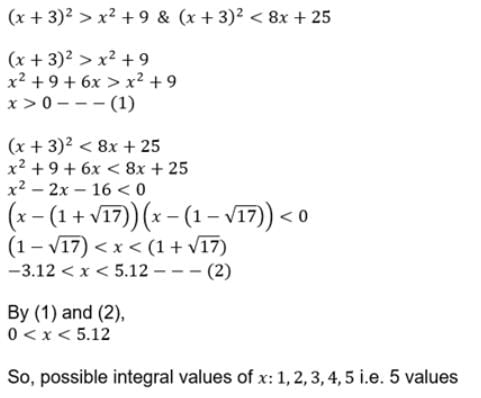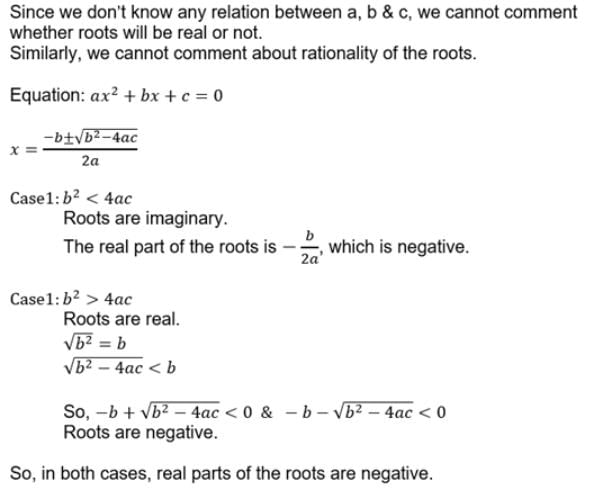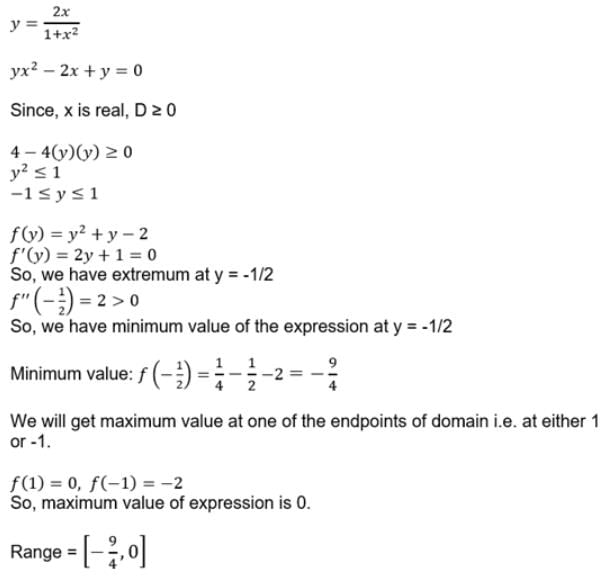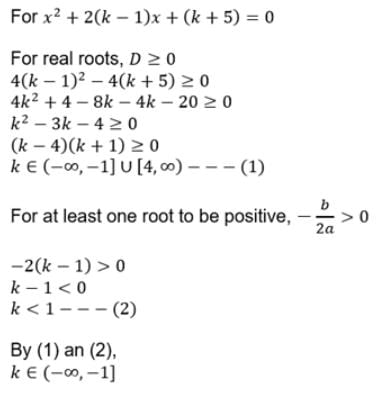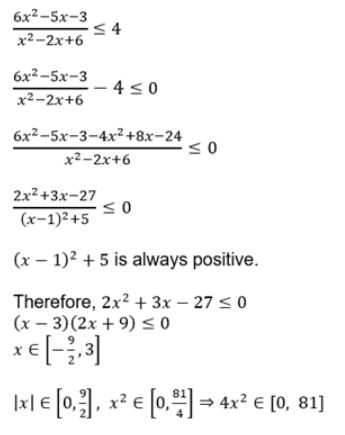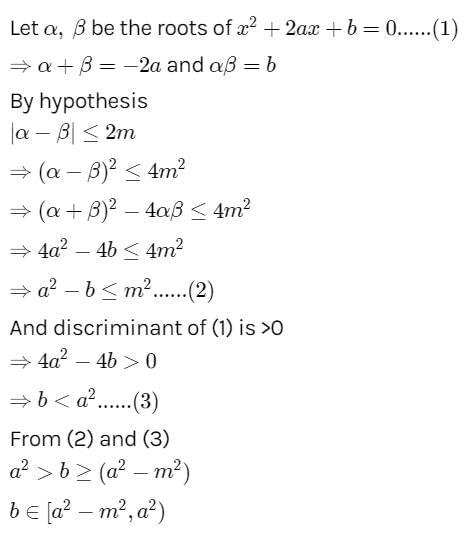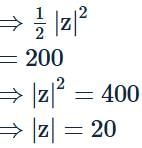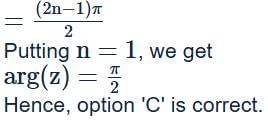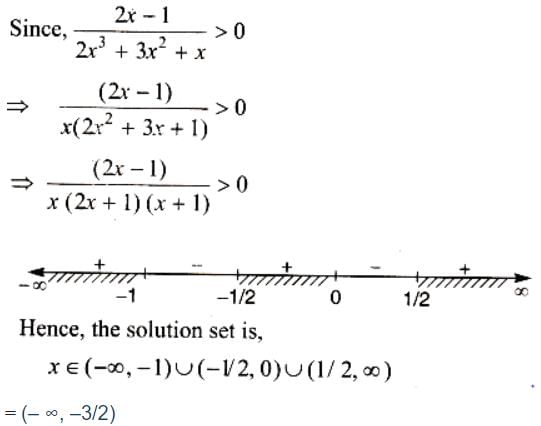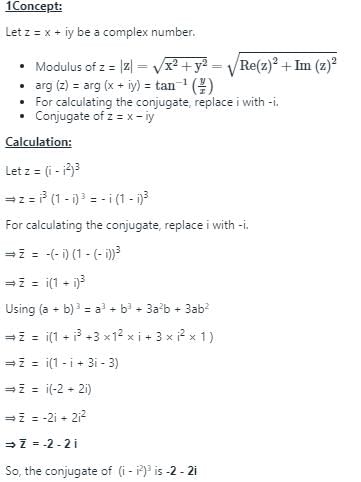Test: Complex Numbers - JEE MCQ
25 Questions MCQ Test - Test: Complex Numbers
The number of the integer solutions of x2 + 9 < (x + 3)2 < 8x + 25 is
Let a > 0, b > 0 and c > 0. Then both the roots of the equation ax2 + bx + c = 0
The set of all solutions of the inequality < 1/4 contains the set
Consider y =, where x is real, then the range of expression y2 + y – 2 is
The values of k, for which the equation x2 + 2(k – 1) x + k + 5 = 0 possess atleast one positive root, are
If coefficients of the equation ax2 + bx + c = 0, a < 0 are real and roots of the equation are non–real complex and a + c + b < 0, then
If the roots of the equation x2 + 2ax + b = 0 are real and distinct and they differ by at most 2m, then b lies in the interval
If (1 – p) is root of quadratic equation x2 + px + (1 – p) = 0, then its roots are
If the area of the triangle on the complex plane formed by the points z,iz and z+iz is 200 square units, then |z| is
For what value of a and b the equation x4 – 4x3 + ax2 + bx + 1 = 0 has four real positive roots ?
If k + |k + z2| = |z|2 where k is real, then a possible argument of z is
Let z = a(cos π/5 + i sin π/5),a ∈ R,|a| < 1, then S = z2015 + z2016 + z2017 + … equals
If S is the set of all real x such that is positive, then S contains



